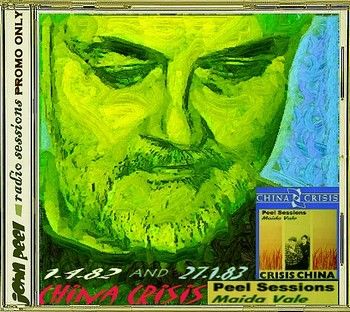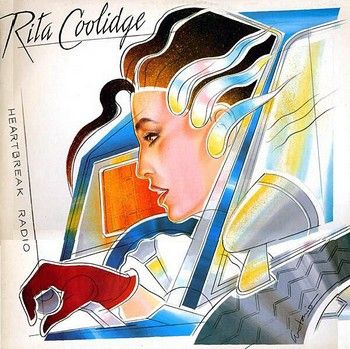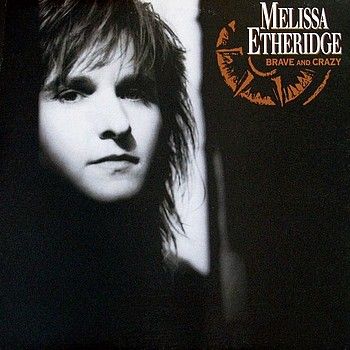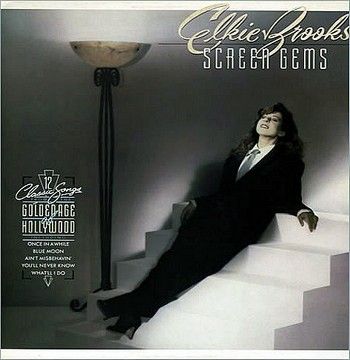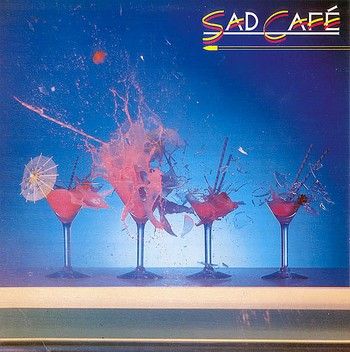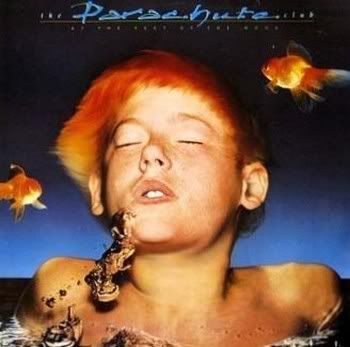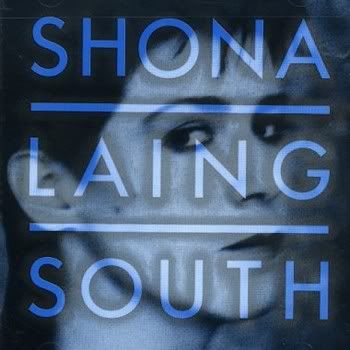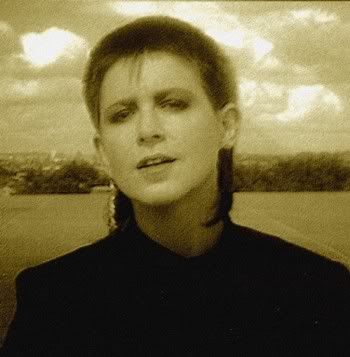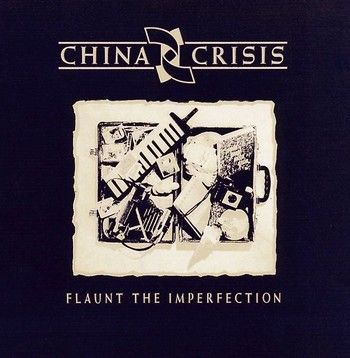
China Crisis - Flaunt the Imperfection - 1985 - Virgin
A bit fiery for most in the new romantic camp during the early '80s, China Crisis was inspired by similar sources but injected their pop songs with occasional political commentary and bluesy, reggae rhythms. Mostly a duo of vocalist/keyboard player Gary Daly and guitarist Eddie Lundon, the group formed in 1979 near Liverpool. The first China Crisis single, "African and White," didn't appear until 1982, but it was quickly picked up by Virgin and made the British charts. Realizing they needed a proper band, Daly and Lundon recruited bassist Gazza Johnson and drummer Kevin Wilkinson, and recorded their debut album Difficult Shapes & Passive Rhythms. Another single, "Christian," hit number 12, followed by two singles from second album, Working with Fire and Steel Possible Pop Songs, Vol. 2. China Crisis spent 1984-85 making their biggest chart run, beginning with their first Top Ten hit, "Wishful Thinking." Third album Flaunt the Imperfection was produced by the sympathetic Walter Becker (from Steely Dan), and resulted in the hit singles "Black Man Ray" and "King in a Catholic Style." A critical mistep followed in 1986, What Price Paradise?, though China Crisis worked with Becker once more on 1989's Diary of a Hollow Horse, which earned critical raves though not much commercial movement. © John Bush, All Music Guide
China Crisis underwent a complete change in sound for their third album, completely ditching the heavy dub rhythms and challenging arrangements of 1982's Difficult Shapes & Passive Rhythms, Some People Think It's Fun to Entertain and 1983's Working with Fire and Steel (Possible Pop Songs, Vol. 2) with an altogether smoother and less aggressive sound. That doesn't equal a commercial capitulation, however; if anything, the choice of Walter Becker (of the then-unfashionable Steely Dan) as producer was a more commercially daring maneuver than anything the group had previously attempted. The overall sound is considerably prettier than before -- the placid Eno-like "Black Man Ray? is downright beautiful -- and the arrangements mix synthesizers with traditional instruments in what was for 1985 an unusually graceful way, with neither predominating. Another difference from the earlier albums is that the group's songwriting is much improved, the failed instrumental experiments and tiresome dance workouts that occasionally marred their earlier albums replaced with a newfound melodic sophistication and lyrical acuity. By the time of 1987's What Price Paradise, this sophistication will be unfortunately replaced by callow slickness, but Flaunt the Imperfection is the one album where China Crisis got the balance right. © Stewart Mason © 2012 Rovi Corporation. All Rights Reserved http://www.allmusic.com/album/flaunt-the-imperfection-r3902/review
"Flaunt The Imperfection" is a classic sophisticated pop rock album and one of the most underrated albums ever recorded. Every track is a jewel. The beautiful cryptic lyrics are backed by magnificent melodies.The musicianship is stunning. Production by Walter Becker is perfect, and if you haven't heard it, then do yourself a favour and give this album a listen. The following text written by M. Sean Fosmire, and published October 03, 2004 on http://blogcritics.org/music describes "Flaunt The Imperfection" very well - "I hate to even call this simply a pop album from mid 80's from an obscure group; It's anything but. It's a mixture of rich experimental global rhythms that not only bring to mind Steely Dan (like other reviewers noted) but also contains faint doses of General Public and Tears For Fears; you hear the music, try to pinpoint where you've heard something like this before, but just can't. This is the kind of admirable musical artistry that a lot of new groups lack today and that I miss. China Crisis is not calculated or contrived in any of their tracks; They seem to go with their gut instinct which works every time". "FTI" is VHR by A.O.O.F.C. The band had talent to burn, and it would be great to hear a new studio album. China Crisis' "Peel Sessions", "Acoustically Yours", and "Best Songs" albums can be found on this blog [All tracks @ 320 Kbps: File size = 98.5 Mb]
TRACKS / COMPOSERS
1 The Highest High - Gazza
2 Strength of Character - Gazza
3 You Did Cut Me - Gazza
4 Black Man Ray - Eddie
5 Wall of God - Gazza
6 Gift of Freedom - Gazza, Lundon
7 King in a Catholic Style - Daly, Johnson, Lundon
8 Bigger the Punch I'm Feeling - Gazza, Lundon
9 The World Spins, I'm Part of it - Gazza, Lundon
10 Blue Sea - Gazza, Lundon
MUSICIANS
Eddie Lundon - Guitar, Vocals, Backing Vocals
Tim Renwick - Guitar, Guitar [Solo]
Gary 'Gazza' Johnson - Bass
Garry Daly - Synthesizer, Vocals, Backing Vocals
Nick Magnus - Grand Piano, Synthesizer
Walter Becker - Synthesizer, Percussion, Production
Kevin Wilkinson - Drums, Percussion
Simon Clarke - Alto & Baritone Saxophone, Flute
Tim Sanders - Soprano & Alto Saxophone
Steve Gregory - Saxophone [Solos]
Pete Thoms - Trombone
Roddy Lorrimer - Trumpet, Flugelhorn
Colin Campsie, Ginny Clee - Backing Vocals
BIO (WIKI)
China Crisis is an English pop/rock band. They were formed in 1979 in Kirkby, near Liverpool, Merseyside with a core of vocalist/keyboardist Gary Daly and guitarist Eddie Lundon. Their output was pop music similar in style to that of New Wave but with strong similarities to the post-punk movement of the early 1980s, namely inclusion of a broader range of musical influences and occasional flirtation with political commentary. Throughout their career, China Crisis has seen moderate success in the United Kingdom with ten hit singles between August 1982 and January 1987 and six albums, as well as commercial success in Western Europe, Australia and the Americas. Sharing an affection for Stevie Wonder, Steely Dan, David Bowie, and Brian Eno, Daly and Lundon played with various Knowsley post-punk groups. Daly then spent time tinkering with synthesizers and a drum machine. Along with Lundon, Daly began writing songs. The pair eventually asked drummer and percussionist Dave Reilly to join them, and in 1982 they released their debut single "African and White" as China Crisis on the independent record label, Inevitable. In June 1982, they supported the former Television guitarist, Tom Verlaine, at London's Venue. The band was signed to Virgin Records and recorded their debut album, Difficult Shapes & Passive Rhythms Some People Think It's Fun To Entertain, which was released in December 1982. A re-release of "African & White" became China Crisis' first hit in the United Kingdom, reaching #45 in the UK Singles Chart. The follow-up single, "Christian", made UK #12 in early 1983 and brought them to national prominence. By this time, Reilly had left the band, but was still credited on the record sleeve as a guest on the single, along with new member Steve Levy playing oboe and saxophone. The album peaked at #21 in the UK Albums Chart. During this period the band toured supporting Simple Minds (as discussed in interviews on the DVD Live in Concert at the Paul McCartney Auditorium Liverpool Institute of Performing Arts). Adding Gary "Gazza" Johnson (bass) and Kevin Wilkinson (drums) to the line-up, a second album, Working with Fire and Steel - Possible Pop Songs Volume Two, was released in November 1983. Tracks included the singles "Tragedy and Mystery" (released six months earlier) and "Hanna Hanna" as well as the title track, "Working With Fire & Steel", which became a hit single in Australia. The album was a Top 20 success in the UK, and China Crisis spent 1984 and 1985 making their biggest chart run, beginning with their only UK Top 10 hit single, "Wishful Thinking", which peaked at #9. Their third album, Flaunt the Imperfection, was produced by Walter Becker of Steely Dan fame and reached #9 in the UK Albums Chart in May 1985. China Crisis was so honoured to directly work with Becker that they 'officially' listed him in the group as a quintet consisting of Daly, Lundon, Johnson, Wilkinson, and Becker on the album's credits. Walter Becker was living on Maui, Hawaii, when he was approached by Virgin to work on this project, and he had to leave his expecting partner Eleanor to assist. Walter never formally appeared with the band, and the subsequent tour featured new keyboard player Brian McNeill. Johnson was now credited as co-writer with Daly and Lundon. The album was previewed by the #14 UK hit single "Black Man Ray", which also enjoyed critical acclaim and international success. The follow-up, "King In A Catholic Style (Wake Up)", was a Top 20 UK single at #19, but it would prove to be the band's last substantial hit. A third release from the album, "You Did Cut Me", stalled at UK #54. They simultaneously released a video compilation, Showbiz Absurd. In 1986, the band collaborated with producers Clive Langer and Alan Winstanley (who worked with Madness) on What Price Paradise, which included "Arizona Sky", the album's first single release, and another Australian hit, "June Bride". All the band were now credited as songwriters. A second single from the album, "Best Kept Secret", made UK #36 in early 1987. It was to be the band's final Top 40 hit single. The five-piece band worked with Becker once more on 1989's Diary of a Hollow Horse, which earned critical acclaim though little commercial success. It spawned the singles "St Saviour Square" and "Red Letter Day", both achieving the lower reaches of the UK Singles Chart. Becker produced of most of the album's tracks, but this time was not credited as an official band member. The band's last studio album, Warped By Success, was released in 1994, following the band's parting of ways with the Virgin label. The album produced their final studio chart single, "Everyday The Same", which briefly edged into the UK Top 100. Although Johnson and Wilkinson both made small contributions, the band was now listed as comprising Daly, Lundon, producer Terry Adams and sound engineer Mark Phythian. In 1995 they released a live unplugged album and video entitled Acoustically Yours, which proved to be their recording swansong. This featured one last single, a live version of "Black Man Ray", and also saw a return for Johnson, Wilkinson and McNeill. Since 1992, there have been four compilation albums of their work for the UK and US markets and three live DVDs. The first of these, entitled "Collection", made the Top 40 in the UK album charts in 1990. On 17 July 1999, drummer Kevin Wilkinson committed suicide by hanging himself at the age of 41. Wilkinson had played with a wide variety of bands including The Waterboys, Fish, The Proclaimers, Squeeze and with Howard Jones. In 2000 Daly contributed a track to a tribute compilation to Wilkinson, Green Indians. Since the late 1990s, China Crisis has concentrated on live performances with only original founder-members Eddie Lundon and Gary Daly being constant throughout, although a number of other musicians have served long spells, most notably guitarist Colin Hinds (Paul Carrack, Ruby Turner, Steve Gibbons Band etc.) who has notched up more than ten years with the band. In December 2002, China Crisis' Daly and Lundon held a one night unplugged venue in Manila, Philippines, with the support of a local band, Rivermaya. They toured the UK during January and February 2007 as part of their 25th anniversary. In June 2008, it was announced they would be the support act for Orchestral Manoeuvres in the Dark's UK October tour. In February 2009, the band performed a fund raising gig for The Friends of Meols Park. Additionally, gigs were played at The Robin 2, Bilston, Wolverhampton on 20 February 2009, and in Stone, Staffordshire on 22 February 2009. Daly's art exhibition 'How To Live & Love Your Life' was held at Kirkby Art Gallery, Kirkby, Knowsley, Merseyside from 23 February to 10 May 2009. China Crisis played at Fort Perch Rock on the Wirral on 8 August 2009, and at the Rewind Festival in Henley-on-Thames, Oxfordshire, on 22 August 2009. The same month they played at The Mathew Street Festival in Liverpool. They returned to the Philippines to perform at Eastwood City on January 20, 2011 and played to sell-out crowds at the Rewind Festivals in Perth (Scotland) and Henley-on-Thames in August 2011. Another concert in the Philippines was held on September 9, 2011 at the SMX Convention Center, together with Ex-Simple Minds with further shows in the Philippines, Singapore and Hong Kong that followed. At recent shows China Crisis's two lead musicians have been joined by 23-year old Siân Monaghan on drums.


